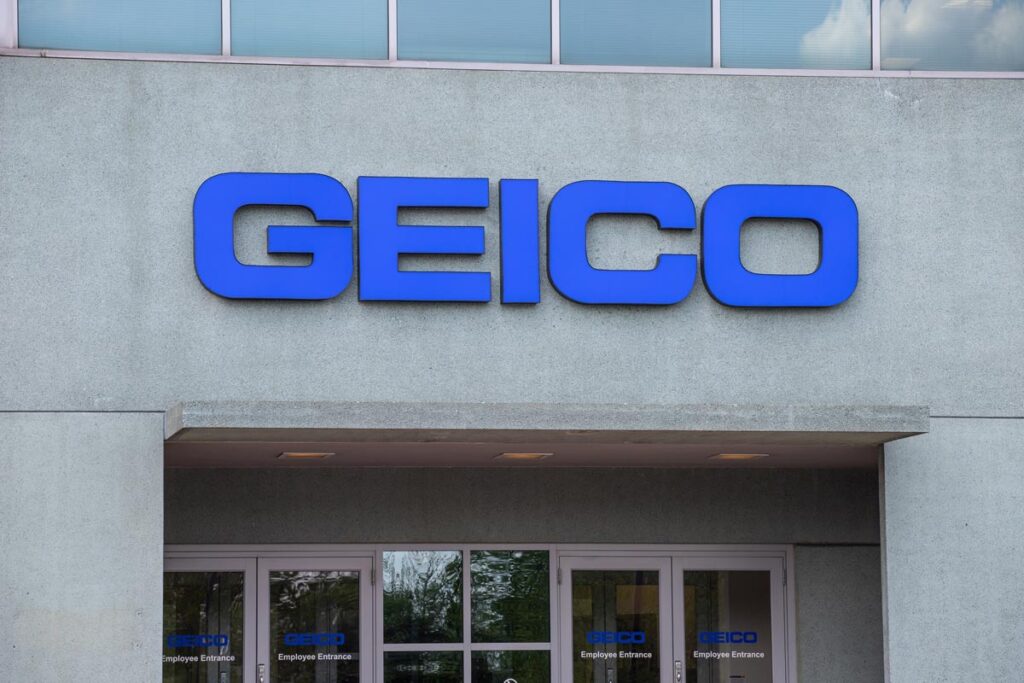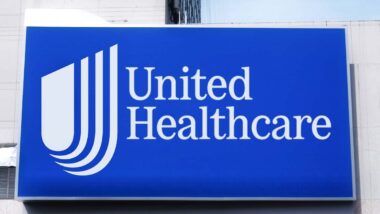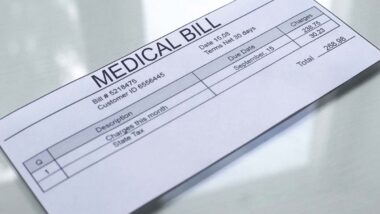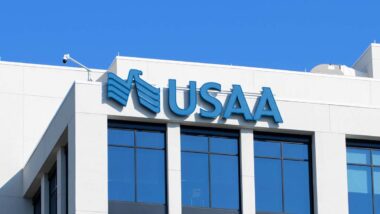Top Class Actions’s website and social media posts use affiliate links. If you make a purchase using such links, we may receive a commission, but it will not result in any additional charges to you. Please review our Affiliate Link Disclosure for more information.

Update:
- An Illinois federal judge allowed Geico to appeal a recent ruling denying its attempt to dismiss a class action lawsuit that alleges it unjustly profited off the COVID-19 pandemic by charging excessive premiums when people drove less.
- On March 3, U.S. District Judge Sharon Johnson Coleman approved Geico’s motion to certify a question for interlocutory appeal regarding the “filed rate doctrine.”
- Geico argues it cannot not be sued because of the “filed rate doctrine,” which intended to block companies from being sued by individuals over rates that have been filed and approved with a regulatory body, in this case, the Illinois Department of Insurance.
- However, the Illinois Department of Insurance has nothing to do with approving or rejecting private automobile insurance rates, Judge Johnson Coleman ruled when initially denying the motion to dismiss the case.
- Despite this, the judge allowed the appeal, stating, “The legal question here has not been answered by the Illinois Supreme Court, and holdings from an Illinois intermediate appellate court and the Seventh Circuit appear to be at odds with one another.”
(July 23, 2020)
A new class action lawsuit accuses Geico of unjustly profiting off the COVID-19 pandemic by charging excessive premiums when people are driving less.
Many states, including Illinois, began enforcing social distancing measures and business closures in March, meaning individuals were staying home for extended periods, the Geico premiums class action lawsuit states.
Plaintiff Briana Siegal of Illinois maintains that while other businesses have been suffering due to the lockdowns prompted by the pandemic, insurance companies have “scored a windfall” by continuing to charge high premiums even though people are driving less and, therefore, getting into fewer collisions.
Because of this, insurance company premiums, including Geico premiums, being charged during the pandemic are “unconscionably excessive,” the complaint says. The class action lawsuit cites a report that determined at least a 30% average refund of paid premiums would be needed to compensate for excess amounts customers paid between mid-March and the end of April.
Geico premiums were charged throughout this time, and the company has failed to issue the appropriate refunds, the complaint alleges.
In addition, Siegal’s complaint says the Geico Giveback program, which applies a 15% discount on new and renewal policies, is “woefully inadequate” to make up for the excessive Geico premiums because it does not apply to premiums the customer has already paid or will pay on policies that existed at the start of the pandemic.
According to the class action lawsuit, Illinois Gov. J.B. Pritzker issued a stay-at-home order March 21. The order was originally supposed to be in place until April 7, but was extended twice — once until April 30 and again until May 29 — due to the severity of the pandemic.
Pritzker’s order prohibited “[a]ll travel, including, but not limited to, travel by automobile, motorcycle, scooter, bicycle, train, plane, or public transit, except Essential Travel and Essential Activities as defined herein.”
The governor announced the state’s phased-in reopening plan May 5, the complaint says. However, the state has a long way to go toward fully opening, and even now, businesses are being told to allow employees to work from home when possible.
The class action lawsuit maintains cellphone location tracking data shows people are driving less because of COVID-19.
From mid-March through the end of April, the complaint says, the number of miles people drive dropped an average of nearly 63% per week because of the pandemic.
In addition, the number of automobile collisions has also decreased, according to the complaint. The Illinois State Police reported crash rates between April 1 and 26 dropped by more than half compared to 2019.
For these reasons, auto insurance companies’ premiums during COVID-19, including Geico premiums, are excessive, the complaint states.
Geico auto insurance rates are meant to cover expected future claims and expenses, the class action lawsuit says. The expected future expenses are extrapolated from historical data.
Siegal’s complaint quotes a joint report by the Center for Economic Justice and the Consumer Federation of America: “Because of COVID-19 restrictions, the assumptions about future claims underlying insurers’ rates in effect on March 1 became radically incorrect overnight. When roads emptied, the frequency of motor vehicle accidents and insurance claims dropped dramatically and immediately. The assumptions in insurers’ rates covering time-frames from mid-March forward about future frequency of claims became significantly wrong when the roads emptied because of Stay-At-Home orders and business closures starting in mid-March. The then-current rates became excessive not just for new policyholders going forward, but also for existing policyholders whose premium was based on now overstated expectation about insurance claims.”
Geico generated a pretax underwriting gain of $984 million during the first quarter of 2020, an increase of nearly 28% over the same quarter in 2019, the lawsuit states.
The class action lawsuit alleges Geico violated the Covenant of Fair Dealing and Good Faith, became unjustly enriched and breached the Illinois Consumer Fraud and Deceptive Business Practices Act.
The plaintiff seeks disgorgement of Geico’s “ill-gotten gains,” all available damages and punitive damages, declaratory and injunctive relief, and any other relief deemed appropriate by the court.
The issue of car insurance and financing during the pandemic is not just a problem in the U.S. Recently, the Financial Conduct Authority in the U.K. announced that it would be helping its residents with payment freezes.
Do you carry Geico auto insurance? Do you think your premiums are unfair? Tell us about it in the comments.
The plaintiff is represented by Ryan F. Stephan, James B. Zouras and Teresa M. Becvar of Stephan Zouras LLP, and Matthew H. Morgan, Robert L. Schug and Charles A. Delbridge of Nichols Kaster PLLP.
The Geico Auto Insurance Premiums Class Action Lawsuit is Briana Siegal, et al. v. Geico Casualty Co., et al., Case No. 1:20-cv-04306, in the U.S. District Court for the Northern District of Illinois.
Don’t Miss Out!
Check out our list of Class Action Lawsuits and Class Action Settlements you may qualify to join!
Read About More Class Action Lawsuits & Class Action Settlements:















83 thoughts onGeico pandemic profit class action escapes dismissal, insurer can appeal
Add me please
During the pandemic I had Geico as my insurance company.
Please Add me!
I didn’t drive much at all and rates went up.
I called them about it during the pandemic and my company DOT was shut down for a period of time and we then opened a few days a week n we car pooled . I wasn’t driving my car anymore and they told me that they are going by what others are being increased charges and they took the tool out of their web site where you can decrease driving time so supposably lowers the payments . Now they increased it due to their losses and accidents that other drivers had. It’s not fair . I now have CKD n have not worked since Dec 2022 and it went up again .
Add me please, the company raised my insurance and wanted me to pay back the money that they got from the government to help us during the pandemic when we couldn’t work and make my payments. I refused to pay them and they put it on my credit report
add me please. Geico was supposed to give a discount during the pandemic & they didnt.
Add me i have been with geico for many years and the rate have been so high
Add me
Add me please. I had geico during this as well
I was with Geico 10 years with no claims and could only afford Liabilty, but both cars were older and we don’t travel much anyway. When the pandemic hit for 19 months our only travel was to the store for the necessities but yet my rates kept creeping up. In May of 2 & 3, of 2022 Ohio had the worst storms and hail recorded in years. Thay denied our claims for the hail damage because our cars were too old. After all of the claims in Ohio the National Board Of Insurance approved premium rate sky rockets. Finally had to find affordable insurance elsewhere. I believe in consistency and longterm commitmment but Geico blew it!
I have been with Geico for 10 years and my rate increased. I only drive 7000 miles per year to work